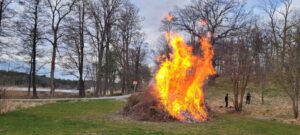Seething since 2000*
Nagasaki crows
'It was the corpses of the Koreans that remained scattered in the ruins longer than any others. One reason is that although many Japanese people survived the atomic bombing, very few Koreans survived. There was nothing we could do. Crows flew down in flocks from the sky and ate the eyeballs of the Korean corpses. They ate the eyeballs.'
—From “Chrysanthemum and Nagasaki”, an installation at the Nagasaki Atomic Bomb Museum by Ishimure Michiko.
| It | remains possible to believe there |
| was | nothing anyone could do about |
| the | melted bottles, burnt coins etc … as for the |
| corpses | lying in the streets and wreckage |
| of | Nagasaki, we tend to forget how |
| the | body resists history; we pretend that |
| Koreans | look different, or |
| that | victims are all the same, even when they |
| remained | silent, we could hear their voices, |
| scattered | across the unbelievably blue sky, hanging |
| in | trees, or from twisted crosses, populating |
| the | horror invisibly, keeping time, giving |
| ruins | a human aspect, a curtain of dead flesh |
| longer | than a shroud, sadder |
| than | silent bells, more dignified than |
| any | surrender, never to be buried like the |
| others. |
| One | day we shall know their names, the |
| reason | for their being there, that morning. Death |
| is | just another criminal, an adversary |
| that | does not need a motive, |
| although | we may wish to assign it one. The |
| many | cries, the stunned desolation of this |
| Japanese | port town in the moonlight – its |
| people | scattered like broken glass. Even the walls that |
| survived | bear shadows like execution drawings, and inside |
| the | museum, the pathetic legacy of |
| atomic | testing around the world lingers. We’re still |
| bombing, | while they sue for peace. Of course, it’s |
| very | hard to know who suffered the most. Was it the |
| few | who remained to bear witness, or the |
| Koreans | who disappeared? It’s hard to know what exactly |
| survived. |
| There | among the dead horses and railway girders, |
| was | an abandonment of sanity, from which |
| nothing | could be salvaged, despite the crows |
| we | saw circling in the blood-red skies. After this, |
| could | anything grow from evil? There was nothing left to |
| do. |
| Crows | are sacred in many cultures. That morning, as they |
| flew | about, making their raids, we sat with our heads |
| down | between shame and annihilation. Meaning existed |
| in | their grim and tidy circles, their flexing |
| flocks | and dusted beaks. They grew fat and sick |
| from | the flesh of the Koreans. We watched |
| the | dim carnival play itself out, while the |
| sky | burned into stillness |
| and | the shrieks grew faint. Scarily, we |
| ate | rice cakes sent from surrounding towns, as |
| the | rare medics wandered about dispensing water. Our |
| eyeballs | remained fixed in a groundward stare. Out |
| of | nowhere, the crows came again, seeking |
| the | remains, the plastic souls of those |
| Korean | dead with no names. They were no longer simply |
| corpses. |
| They | became ghosts that haunt our city still. We |
| ate | rice cakes that may or may not have carried |
| the | crows’ radiation. They ate the |
| eyeballs. |


